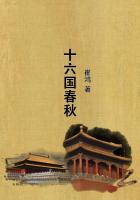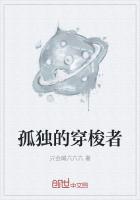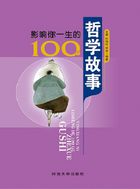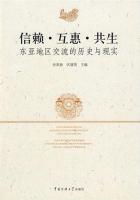David Ricardo ,unlike Adam Smith,neatly sets forth the determination of the value of commodities by labour-time,and demonstrates that this law governs even those bourgeois relations of production which apparently contradict it most decisively.Ricardo's investigations are concerned exclusively with the magnitude of value ,and regarding this he is at least aware that the operation of the law depends on definite historical pre-conditions.
He says that the determination of value -by labour-time applies to "such commodities only as can be increased in quantity by the exertion of human industry,and on the production of which competition operates without restraint".[16]
This in fact means that the full development of the law of value presupposes a society in which large-scale industrial I production and free competition obtain,in other words modern bourgeois society.For the rest,the bourgeois form of labour is regarded by Ricardo as the eternal natural form of social labour.Ricardo's primitive fisherman and primitive hunter are from the outset owners of commodities who exchange their fish and game in proportion to the labour-time which is materialised in these exchange-values.On this occasion he slips into the anachronism of allowing the primitive fisherman and hunter to calculate the value of their implements in accordance with the annuity tables used on the London Stock Exchange in 1817.Apart from bourgeois society,the only social system with which Ricardo was acquainted seems to have been the "parallelograms of Mr.Owen".Although encompassed by this bourgeois horizon,Ricardo analyses bourgeois economy,whose deeper layers differ essentially from its surface appearance,with such theoretical acumen that Lord Brougham could say of him:
"Mr.Ricardo seemed as if he had dropped from another planet."Arguing directly with Ricardo,Sismondi not only emphasises the specifically social character of labour which creates exchange-value,[17]but states also that it is a "characteristic feature of our economic progress"to reduce value to necessary labour-time,to "the relation between the needs of the whole society and the quantity-of labour which is sufficient to satisfy these needs".[18]
Sismondi is no longer preoccupied with Boisguillebert's notion that labour which creates exchange-value is distorted by money,but just as Boisguillebert denounced money so does Sismondi denounce large industrial capital.Whereas Ricardo's political economy ruthlessly draws its final conclusion and therewith ends,Sismondi supplements this ending by expressing doubt in political economy itself.
Since the determination of exchange-value by labour-time has been formulated and expounded in the clearest manner by Ricardo,who gave to classical political economy its final shape,it is quite natural that the arguments raised by economists should be primarily directed against him.If this polemic is stripped of its mainly trivial [19]form it can be summarised as follows:
One .Labour itself has exchange-value and different types of labour have different exchange-values.If one makes exchange-value the measure of exchange-value,one is caught up in a vicious circle,for the exchange-value used as a measure requires in turn a measure.This objection merges into the following problem:given labour-time as the intrinsic measure of value,how are wages to be determined on this basis.
The theory of wage-labour provides the answer to this.
Two .If the exchange-value of a product equals the labour-time contained in the product,then the exchange-value of a working day is equal to the product it yields,in other words,wages must be equal to the product of labour.[20]But in fact the opposite is true.Ergo ,this objection amounts to the problem,--how does production on the basis of exchange-value solely determined by labour-time lead to the result that the exchange-value of labour is less than the exchange-value of its product?This problem is solved in our analysis of capital.
Three .In accordance with the changing conditions of demand and supply,the market-price of commodities falls below or rises above their exchange-value.The exchange-value of commodities is,consequently ,determined not by the labour-time contained in them,but by the relation of demand and supply.In fact,this strange conclusion only raises the question how on the basis of exchange-value a market-price differing from this exchange-value comes into being,or rather,how the law of exchange-value asserts itself only in its antithesis.This problem is solved in the theory of competition.
Four .The last and apparently the decisive objection,unless it is advanced --as commonly happens --in the form of curious examples,is this:if exchange-value is nothing but the labour-time contained in a commodity,how does it come about that commodities which contain no labour possess exchange-value,in other words,how does the exchange-value of natural forces arise?The problem is solved in the theory of rent.
FOOTNOTES
1.A comparative study of Petty's and Boisguillebert's writings and characters --apart from illuminating the social divergence between Britain and France at the close of the seventeenth century and the beginning of the eighteenth --would explain the origins of those national contrasts that exist between British and French political economy.The same contrast reappears in Ricardo and Sismondi.















